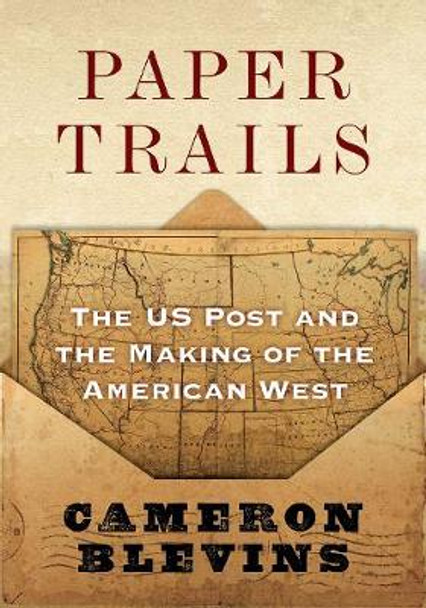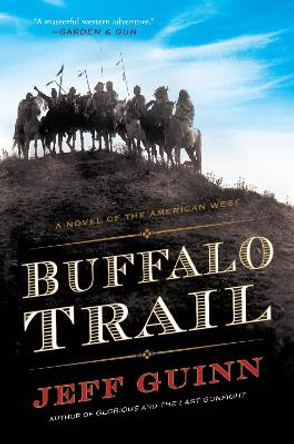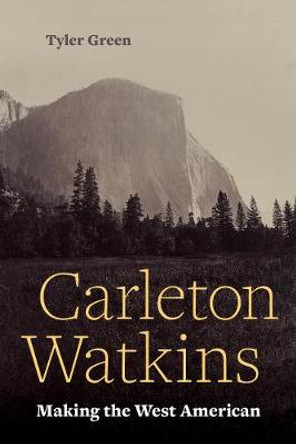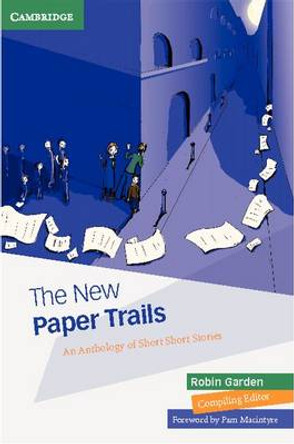Description
About the Author
A leader in the field of digital history, Cameron Blevins is Associate Professor, Clinical Teaching Track, in the History Department at the University of Colorado Denver.
Reviews
Paper Trails brings impressive depth and richness to historians long-standing interest in how federal power shaped the North American West....Blevinss study calls attention to infrastructures role in defining territory and supporting white settlement. Paper Trails will be of particular interest to historians of the nineteenth-century United States and the North American West, spatial historians and digital practitioners, and scholars of settler colonialism and state power....Paper Trails represents the leading edge of digital history. By combining large-scale data analysis with archival research and close reading, Blevins delivers unexpected insights into the postal system, the people who used it, and the American West they made. * Sean Fraga, American Historical Review *
A stunning work of scholarship. * Joseph M. Adelman, New England Quarterly *
A stunning work of scholarship....A model of digital history methods and historical writing...Paper Trails delivers a fascinating view into how the post office integrated the West into the United States....The result of Blevins's meticulous work is a significant contribution to debates about the formation of an American state in the nineteenth century, the nature of federal power in the West, and the role of digital history as a research method. * Joseph M. Adelman, New England Quarterly *
Cameron Blevins's Paper Trails is a creative, sophisticated history of the U.S. Post in the late nineteenth-century West. Weaving together social and spatial history, the book offers two complementary interventions. One is methodological, challenging critics who maintain that digital methods merely dress up history we already knew. The other addresses debates about the U.S. state, moving beyond the categories of 'strong' versus 'weak' to offer fresh insight on state power in the nineteenth century.... Paper Trails reads mostly as narrative history, but Blevins pauses strategically to explain his theory of power and why it matters. He does this effortlessly, which is a testament to the book's prose and its considered conceptualization. The book will be of great interest to scholars of western history, digital humanities, and political economy. * Emma Teitelman, Western History Quarterly *
Paper Trails elegantly employs digital history tools and spatial analysis methods to explain how the United States extended federal authority over the American West.... Blevins pays careful attention to the physicality of postal spaces too, from customer windows and post office boxes to stamps, money orders, mail sacks, and satchels. He documents the cartographic work of the U.S. Post's Topographer's Office in Washington, D.C., and embeds postal offices in an ever-shifting web of transactions, correspondence, and interpersonal connections that constituted the most spatially dense federal presence beyond the Mississippi River.... It is one thing to imagine this in the abstract and quite another to see such patterns emerge in map after map and through the compelling stories recounted throughout the narrative. * Tona Hangen, Journal of American History *
See[s] the American West in new terms....Apart from the foundational role that the postal network played in western settlement, Blevins also asks us to consider how American life both then and now is quietly but directly shaped by these 'large-scale structures, systems, and networks.' Such an observation can prompt rich discussions about both seen and unseen forces of history....Readers will be...intrigued by the extensive companion website to the book (www. gossamernetwork.com). In a site that is intuitive and thoughtful, Blevins and his colleagues show in real time how the postal network followed- and sometimes anticipated-the rapid dispossession of Native lands in the West. By aggregating and analyzing the location of postal networks, Blevins shows what would otherwise be invisible to historians of the West, answering critics of digital history as confirming what we already know. * Susan Schulten, Journal of the Civil War Era *
Perhaps not since Miracle on 34th Street extolled the United States Postal Service for exonerating Santa Claus has an in-depth examination of post office history been so interesting as Cameron Blevinss Paper Trails.... In many waysPaper Trailsdoes for post offices what William CrononsNatures Metropolisdid for grain elevators. He slices them open and turns them inside out, explaining both their inner workings and significance in understanding the big picture. Scholars interested in postal history, digital history, western expansion, state power, and the analysis of large-scale structures and systems should read this book. They will find that they will never look at their local post office-or perhaps even their Facebook page-the same way again.. * Michael A. Amundson, Environmental History *
This work traces the meteoric rise of the US postal system in its quest to connect far-flung reaches of the remote American West in the late 19th century. Blevins argues that similar to current enmeshed corporations like Google or Amazon, the postal system structurally transformed American history. He further contends that 'the US post was the underlying spatial circuitry of western expansion' and enabled the ensuing-and tragic-human conquest and full-scale resource exploitation that rapidly followed. Yet, local post offices also served as community hubs, knitting together remote rural communities. A product of the relatively new subfield of digital history, this study also draws on extensive data sets, maps, and scores of archival records to create a remarkable textual and visual record based on spatial analysis of an immense and sprawling federal apparatus. * Choice *
Paper Trails is recommended for those open to a closer inspection of western development, of which the U.S. Post is no doubt an integral layer. Among the familiar, readers will be challenged to consider new perspectives in new ways, and in the process they will be introduced to a host of interesting characters and characteristics. * Dan K. Utley, Southwestern Historical Quarterly *
In this impressive and innovative work, Cameron Blevins uses digital history methods to carefully document how the US Postal Service facilitated American settlement in the far West during the late nineteenth century ... it is at once social history, political history, business history, and policy history presented in clear, lively prose that makes for fascinating reading. * John Majewski, Missouri Historical Review *
A shining masterpiece of interdisciplinary scholarship....Blevins's brilliance lies in his expert balance of broad, sweeping analysis and detailed social history. Paper Trails is not just a story about data and state functions but also a chronicle about ordinary people whose lives were impacted by accessibility to the largest-scale postal service in the world....Blevins argues that postal centralization, characterized by an agency model of public-private partnerships, local agents, and contractors, enabled the rapid development of postal services essential to the nation's periphery through outsourced employees, transportation, and postal facilities....Maps, charts, and captivatingly written narratives...illustrate his data, examine broad historical questions, and reinforce his central arguments. * Robert O'Dell III, Journal of the Gilded Age and Progressive Era *
Cameron Blevins's Paper Trails: The U.S. Post and the Making of the American West is a wonderful example of digital history built on information technology and archival research. * Marc Levinson, Wall Street Journal *
Paper Trails offers a timely reminder that the post has always been political. [...] One of the most striking aspects of Paper Trails isn't in the book. Mr Blevins is a digital historian, meaning he uses data science to analyse historical trends. He built an accompanying website replete with interactive maps to show readers how, within a generation, the postal service helped colonise a continent. These online dispatches beautifully illustrate the formative power of snail mail. * The Economist *
Paper Trails is the kind of book that will, I believe, spark greater interest in less familiar aspects of the American story, and for that, Mr. Blevins deserves thanks. * Mark A. Kellner, Washington Times *
Paper Trails has a great deal to interest and provoke thought in readers of all stripes, philatelists included. * Susanna Mills, American Philatelist *
A thoughtful consideration of an overlooked but clearly central aspect of westward expansion. * Kirkus *
In the hands of Cameron Blevins, isolated post offices become windows into life in the American West. With great skill, Blevins portrays the expansive growth of the American state in an original, surprising, and persuasive way. * Edward L. Ayers, winner of the Bancroft Prize *
With the publication of Paper Trails, Cameron Blevins emerges as a leader in a critically important but under-recognized genre: books in which authors make fully persuasive cases for the great importance of historical subjects that their predecessors barely noticed. With the intensity and range of Blevins's research, the clarity and vigor of his writing style, and, most of all, his distinctive perspective on the relationship between the history of the American West and the history of the federal government, this book gains the status of a fresh appraisal of the arrangements of power and population in the West and in the nation as a whole. * Patricia Nelson Limerick, author of Legacy of Conquest *
In this engaging and beautifully written book, Cameron Blevins combines rich archival detail and the insights of spatial analysis to provide a nuanced account of how the federal government shaped the settlement of the US West. Paper Trails will make you see state power in entirely new ways. * Rachel St. John, University of California, Davis *
As the human presence of the American state, the postal system diffused office and service across a continental landscape. In teaching this lesson and others, Cameron Blevins has produced a study so methodologically and empirically rich that it sets a model for disciplines beyond history. * Daniel Carpenter, author of Democracy by Petition: Popular Politics in Transformation, 1790-1870 *
Paper Trails is a sweeping overview of a major US government agency in the nineteenth-century trans-Mississippi West. By combining modern digital mapping techniques with traditional archival research, Blevins shows how postal policy can help us better understand the rise of the modern American state. * Richard R. John, author of Spreading the News: The American Postal System from Franklin to Morse *
Lucid and eloquent.... Because Blevins is a proficient practitioner of the methods of computation, cartography, and display often lumped together under the rubric of digital history, instructors might consider this as an example of that practice... Striking quantitative and geographical observations abound...Like so much else in this fine monograph, such observations are feats of research and arithmetic, rather than data analysis or digitized display. * David M. Henkin, The History Teacher *
Awards
Winner of Winner, Vincent P. DeSantis Book Prize, Society of Historians of the Gilded Age and Progressive Era Winner, Western Heritage Award for Outstanding Nonfiction, National Cowboy & Western Heritage Museum Winner, National Postal Museum Award for Scholarship in Postal History.
Book Information
ISBN 9780190053673
Author Cameron Blevins
Format Hardback
Page Count 248
Imprint Oxford University Press Inc
Publisher Oxford University Press Inc
Weight(grams) 1g
Dimensions(mm) 175mm * 257mm * 23mm






